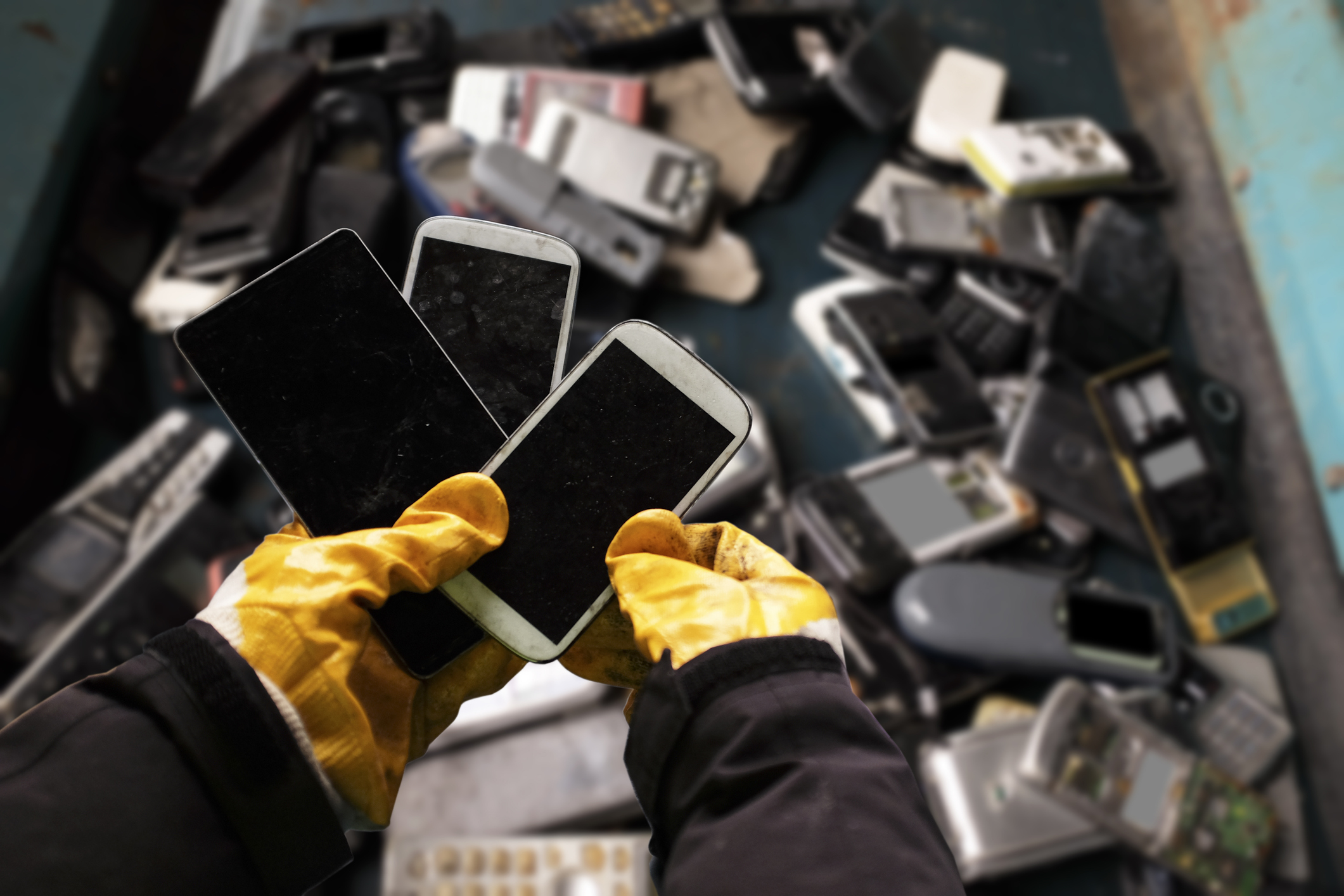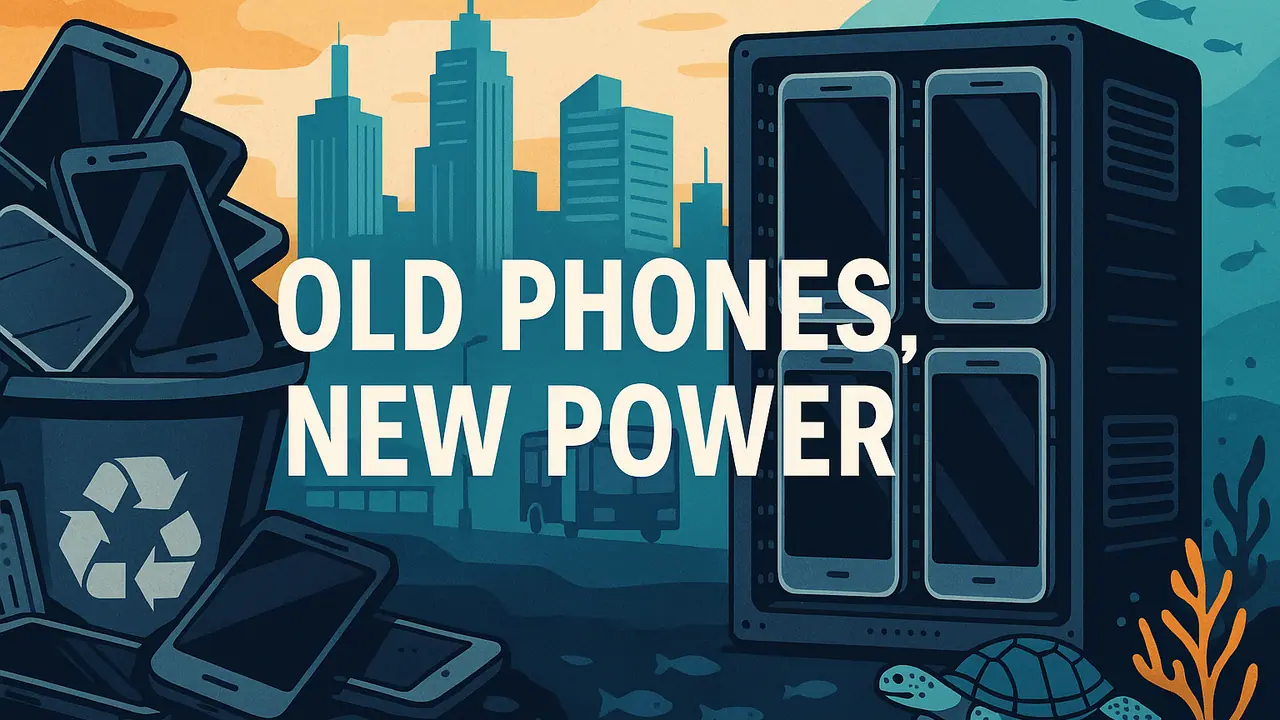Researchers from the University of Tartu have turned outdated smartphones into low-cost micro data centres to reduce e-waste and support smart cities and marine conservation.
In a digital era where technology evolves at breakneck speed, over 1.2 billion smartphones are produced globally each year — only to be discarded within two to three years of use. Now, researchers at the University of Tartu’s Institute of Computer Science in Estonia are challenging this cycle of consumption and waste.

In a pioneering project supported by the Estonian Research Council, scientists have demonstrated that outdated smartphones can be transformed into efficient, low-cost micro data centres. This innovation not only extends the lifespan of devices but also significantly contributes to smart city infrastructure and marine conservation — all at a cost of just 8 euros per phone.
Giving Old Devices a New Life
The rapid pace of technological innovation means most smartphones are replaced within two to three years — often when they are still fully functional. While recycling is encouraged, many phones still end up discarded, contributing to environmental pollution and unnecessary use of natural resources.
Recognizing the limitations of recycling and the challenges in altering consumer behavior, researchers Huber Flores, Ulrich Norbisrath, Zhigang Yin, and Perseverance Ngoy, along with international collaborators, devised an alternative.
“Innovation often begins not with something new, but with a new way of thinking about the old, re-imagining its role in shaping the future,” explained Huber Flores, Associate Professor of Pervasive Computing.
Their answer: repurpose outdated smartphones as micro data centres — compact systems capable of collecting, processing, and storing digital information without relying on new hardware.

How It Works: Turning Phones into Micro Data Centres
The researchers began by removing the lithium batteries from the old phones to prevent potential environmental hazards such as chemical leakage. These phones were then connected to external power sources, assembled into clusters of four, and housed in 3D-printed casings. The resulting prototypes were not only cost-effective but also surprisingly robust.
Each smartphone cluster functions as a miniature data centre. Despite their modest size, they can process real-time data for urban and environmental monitoring. And perhaps most impressively, they function without the need for major infrastructure investments.
Building one such unit costs around 8 euros — an extraordinary leap toward affordable, sustainable computing.
Smart Cities: Monitoring Urban Life at Low Cost
One of the immediate use cases for these micro data centres is in urban environments. For instance, they can be installed at bus stops to monitor passenger flow in real-time. This data can then help optimize public transportation systems, reduce congestion, and enhance commuter experience.
This setup offers a scalable and sustainable way to build smarter cities using existing technology rather than developing costly new devices.

Underwater Data Collection: Saving the Seas
The team’s prototype was even tested underwater — a setting where data collection is traditionally expensive and labour-intensive. Typically, marine biodiversity monitoring involves scuba divers manually recording video, which is later analyzed on land. However, with this smartphone-powered data centre, the process becomes automated and efficient.
The underwater prototype was able to track and count sea species autonomously, opening the door to future deployments in marine conservation, fisheries, and climate research.
Redefining Sustainability in Tech
“Sustainability is not just about preserving the future — it’s about reimagining the present, where yesterday’s devices become tomorrow’s opportunities,” commented Ulrich Norbisrath, Associate Professor of Software Engineering.
Rather than being a stopgap or a niche solution, this research paves the way for a paradigm shift in digital infrastructure. It proves that innovation doesn't always require creating something new — sometimes it means rethinking what we already have.

Global Implications
With over a billion smartphones discarded every year, the potential impact of this model is vast. Governments, environmental agencies, and tech companies could all benefit by adopting similar strategies — reducing emissions, cutting e-waste, and expanding access to low-cost computing solutions.
By making micro data centres out of discarded devices, the University of Tartu team has taken a critical step toward circular economy practices in technology — where the lifecycle of a device doesn't end in a landfill, but evolves into a tool for sustainable progress.


